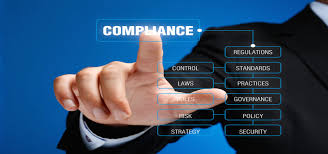Boston Heart Diagnostics Pays $26.67 Million to Settle False Claims Act Case

Boston Heart Diagnostics, a Massachusetts company, agree to pay $26.7 million to settle a False Claims Act case involving allegations of paying illegal kickbacks to physicians.
According to the settlement, Boston Heart charged Medicare and Medicaid patients for advanced lipid testing referred by providers who received kickbacks from independent marketers at the direction of Boston Heart.
Starting in 2015, Boston Heart provided advanced lipid testing to Texas hospitals in exchange for referral payments. In several instances, the advanced lipid tests were not “medically necessary.” Boston Heart then pressured sales representatives to sell life plans that included a personalized nutrition program and further tests.
Boston Heart also conspired with the hospitals’ independent marketers who offered management service organizations to find willing physicians to participate in the scheme and made payments to the physicians who agreed to participate. The MSO payments were disguised as investment returns that were actually based on, and offered in exchange for, physician referrals.

Boston Heart helped the MSOs identify physician targets, referred interested physicians to the MSOs to secure their business, and participated with the MSOs in sales pitches to offer physicians money in exchange for patient referrals. Based on these arrangements, physicians referred patients to the participating Texas hospitals and Boston Heart for laboratory tests which were billed to Medicare, Medicaid and TRICARE.
Boston Heart also conspired with the Texas hospitals and others to submit claims for outpatient laboratory testing for patients who were not hospital outpatients in order to receive higher reimbursement rates from federal healthcare programs.
The settlement also resolves allegations that Boston Heart paid processing and handling fees, waived patient co-payments and deductibles, and provided physician practices with in-office dietitians in exchange for physician referrals for laboratory testing. This allegation was raised in two qui tam cases filed by whistleblowers. Under the settlement, the whistleblowers will receive approximately $4.36 million of the settlement.

Boston Heart’s schemes violated the Anti-Kickback Statute, which prohibits offering, paying, soliciting or receiving remuneration to induce referrals for products or services by Medicare, Medicaid and other federal healthcare programs.
Additionally, the Stark Law forbids a laboratory from billing Medicare and Medicaid for certain services referred by physicians that have a financial relationship with the laboratory.
At bottom, the AKS and Stark Law are intend to ensure that medical providers’ judgments are not compromised by improper financial incentives and instead are based on the patients’ best interests.















